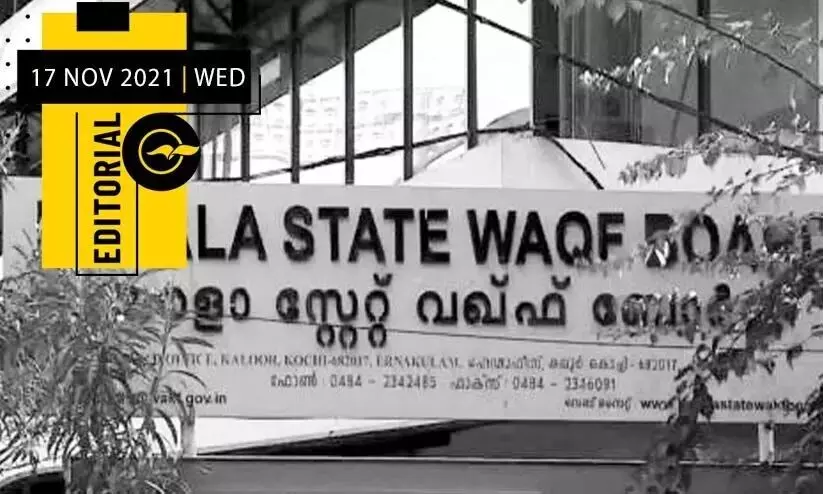
Wakf Board appointments should be transparent
text_fieldsThe controversy between the Pinarayi Vijayan-led Left Front government and Muslim organizations has escalated into a public confrontation following the Assembly passing a bill to transfer the State Wakf Board appointments to the Public Service Commission. When the Muslim League alleges that a cell is operating in the AKG Bhavan to destroy the Muslim community, government spokespersons retort that the League is trying to incite communal hatred against the government. A collective stance is expected to be announced after a meeting of representatives of Muslim organizations on November 22. Prior to the Chief Minister's announcement to leave the appointment of Wakf board members to the PSC in the Budget Session of the Legislative Assembly in February 2017, the Government had decided to pass the appointments in institutions under the Devaswom Board to PSC; however, when the Left government withdrew from the declaration under pressure from some Hindu organizations, Muslim organizations pointed out the discrimination and injustice in leaving only appointments under the Wakf Board to the PSC.
In response to this, the present Minister in charge of the Wakf Department, VS Abdurrahman explained that appointments in hundreds of Devaswom institutions are not as easy as the appointment of 112 Wakf Board staff; It is not essential to form a recruitment board for the purpose; it is something that the PSC can handle with ease. This argument, however, is contestable. If a three-member recruitment board headed by a retired judge complying with the rules and regulations with adequate staff can manage thousands of applications, a special recruitment board can be set up for Wakf Board appointments too without much workload. It can be assumed that it was with increasing pressure and opposition from savarna Hindu organisations that the left government had to forgo the decision to let the PSC handle appointments to the Devaswom Board. This is happening while there are strong criticisms that 90% of the Board's employees are already from savarna Hindu communities.
Wakf assets worth crores of rupees have been set aside by the forefathers for the good interests of religion and community in the name of faith. It is a legal requirement that the wakf property is used for the purposes of the wakf, such as the protection of mosques and religious centres and the protection of the poor. The Wakf Laws are passed by Parliament in a timely manner, stipulating that Wakf properties should not be misappropriated or orphaned but instead utilized and nurtured for their intended purpose, and the Central Wakf Board and the State Wakf Boards have been functioning as per these. Amendments have also been made to curb irregularities and corruption in the use of Wakf assets through legal loopholes. It is deemed that central-state Wakf boards function on these. However, several litigations on the matter prove that there are political and otherwise private interests that determine appointments in Wakf boards and other institutions.
An example is that corruption charges of thousands of crores were heaped upon the Wakf minister in Bengal during the tenure of the Left-led government. Even if one has faith in the law, it does not have to be so in practice. In Kerala too, during the UDF-LDF rule, the Wakf Board's turmoil did make news. In this context, the Wakf Board really needs to be handed over to those who are relatively credible, honest and capable beyond the party-organization interests and the Board should make appointments in a transparent manner. The real solution to the problem is to set up a special recruitment board on the model of the Devaswom Board and transparently recruit believers and eligible people. When appointments are left to the Public Service Commission, the Devaswom Recruitment Board's model may stipulate that believing Muslims must be appointed, but this stipulation stands the risk of being challenged in court and one cannot rule out the court's decision being in favour of the plaintiffs, citing religious discrimination.
This is also one of the major reasons for the organisations' apprehensions. The government at that point will have no option but to express their inability or enforce the court's judgement. At any rate, a situation where the Wakf board is being made a pawn in this political tussle has to be avoided.






















